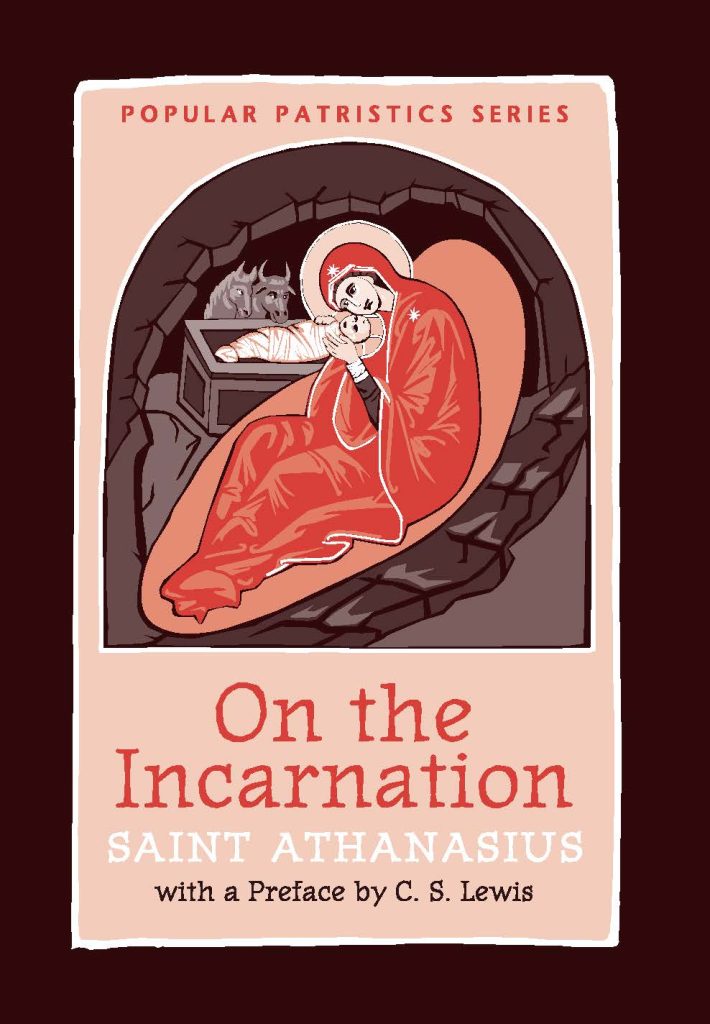This Tuesday we are discussing Chapter 3 of On the Incarnation (§§11-18 – “The Divine Dilemma and Its Solution in the Incarnation – Part 2”). Last week we looked at the dilemma of how God can be both true to his word that the natural consequence of disobedience is corruption, death, and ultimately non-existence versus God’s compassionate desire to rescue that which was created in his own image from such a fate. The solution is the Incarnation by which the creative Logos takes upon himself our body and our death so as to restore us to incorruption. For as Paul writes, “In Adam all die, even so in Christ shall all be made alive.” 1 Cor. 15:22. In Chapter 3, Athanasius sets forth a second reason for the Incarnation and that was so that we may fully know God and thus become fully human. As you read through Chapter 3, think about these things:
· Why is it necessary that we have knowledge of God? Is this lack of knowledge of God and its consequences reflected in Ecclesiastes 3?
· What is the source of idolatry and the different types of idolatry that Athanasius lists?
· What are the three ways in which God gives us knowledge of his Word, and through the Word, himself?
· What does it mean to be human and why is the lack of knowledge of God dehumanizing? How are modern systems of thought dehumanizing today? (For a discussion of Pope John Paul’s II understanding of this issue see HERE (First Things, December 1999).
· Why is the Logos the only means to renew the image of God within humanity and each of us?
· How does Athanasius answer Nicodemus’s question in John 3 of what it means to be born-again?
· How does the Incarnation demonstrate God’s “dealing with us as a good teacher with his pupils”?
· Why did our idolatrous nature require the Logos to, as John 1:14 says, take upon flesh and dwell among us?
· What is the paradox or absurdity of the Incarnation that Athanasius attempts to resolve in section 17?
· In section 18, Athanasius addresses the Divine Economy of Jesus being both fully Human and fully God. The first half of this section concerns the heresy of Docetism which held that the Son merely appeared to have a real body. Think through the different Gospel accounts that demonstrate Jesus’ physical humanity. (John will call those who deny Jesus has come in the flesh as the antichrist. (1 John 1:2-4))
· In the second part of section 18, Athanasius addresses the proofs of the Divinity of Jesus. Think through the different Gospel accounts that demonstrate Jesus’ divine origin.
During last week’s discussion, we touched on Athanasius and the Arians. Attached is an excerpt from Reading Scripture with the Church Fathers, which is an evangelical overview of the Patristics. pp.56-65. Its brief discussion of Athanasius gives a sampling of the scriptural support for the Arian understanding that Jesus was not fully Divine and provides a summary of Athanasius’ argument that Jesus was necessarily Divine because 1) only God can save and 2) Christ is worshipped.
Dinner is 6. The menu is Chicken Mirabella. Please bring a friend.
Therefore, following the holy fathers, we all with one accord teach men to acknowledge one and the same Son, our Lord Jesus Christ, at once complete in Godhead and complete in manhood, truly God and truly man, consisting also of a reasonable soul and body; of one substance (homoousios) with the Father as regards his Godhead, and at the same time of one substance with us as regards his manhood; like us in all respects, apart from sin; as regards his Godhead, begotten of the Father before the ages, but yet as regards his manhood begotten, for us men and for our salvation, of Mary the Virgin, the God-bearer (Theotokos); one and the same Christ, Son, Lord, Only-begotten, recognized in two natures, without confusion, without change, without division, without separation; the distinction of natures being in no way annulled by the union, but rather the characteristics of each nature being preserved and coming together to form one person and subsistence, not as parted or separated into two persons, but one and the same Son and Only-begotten God the Word, Lord Jesus Christ; even as the prophets from earliest times spoke of him, and our Lord Jesus Christ himself taught us, and the creed of the Fathers has handed down to us .
– Council of Chalcedon (A.D. 451) (BCP 864).

